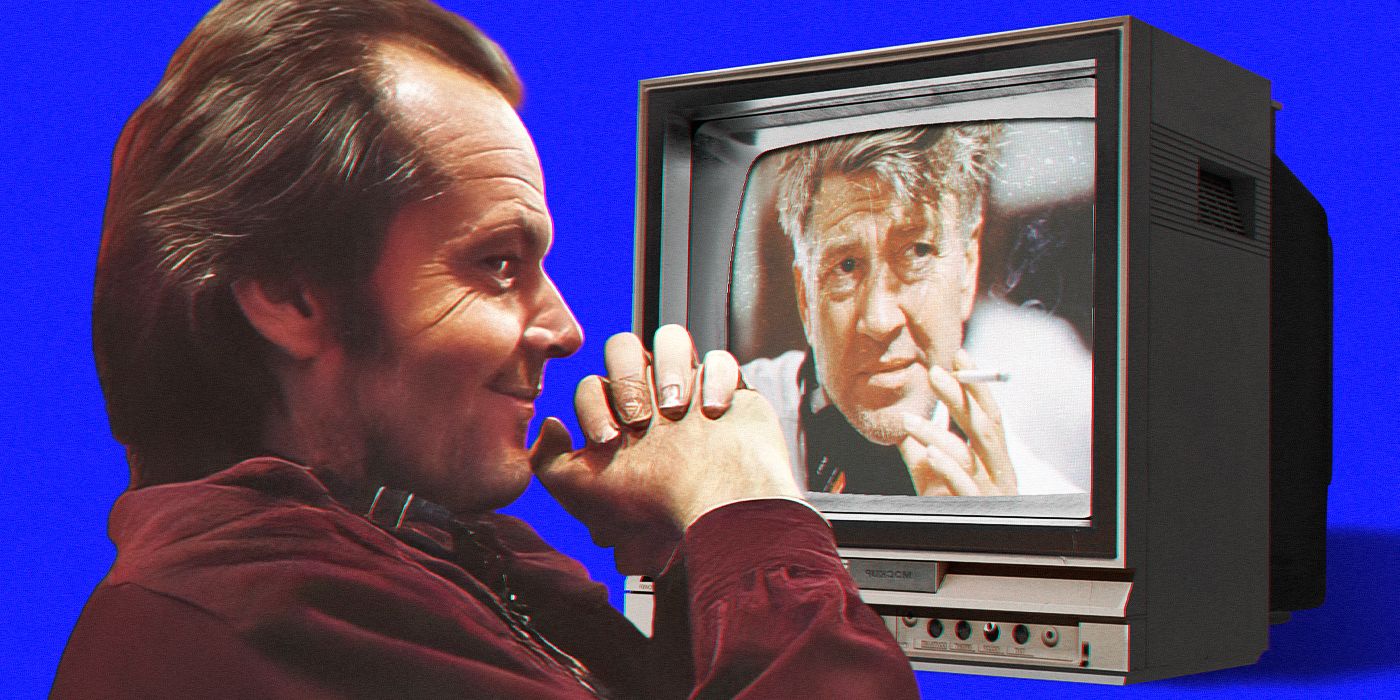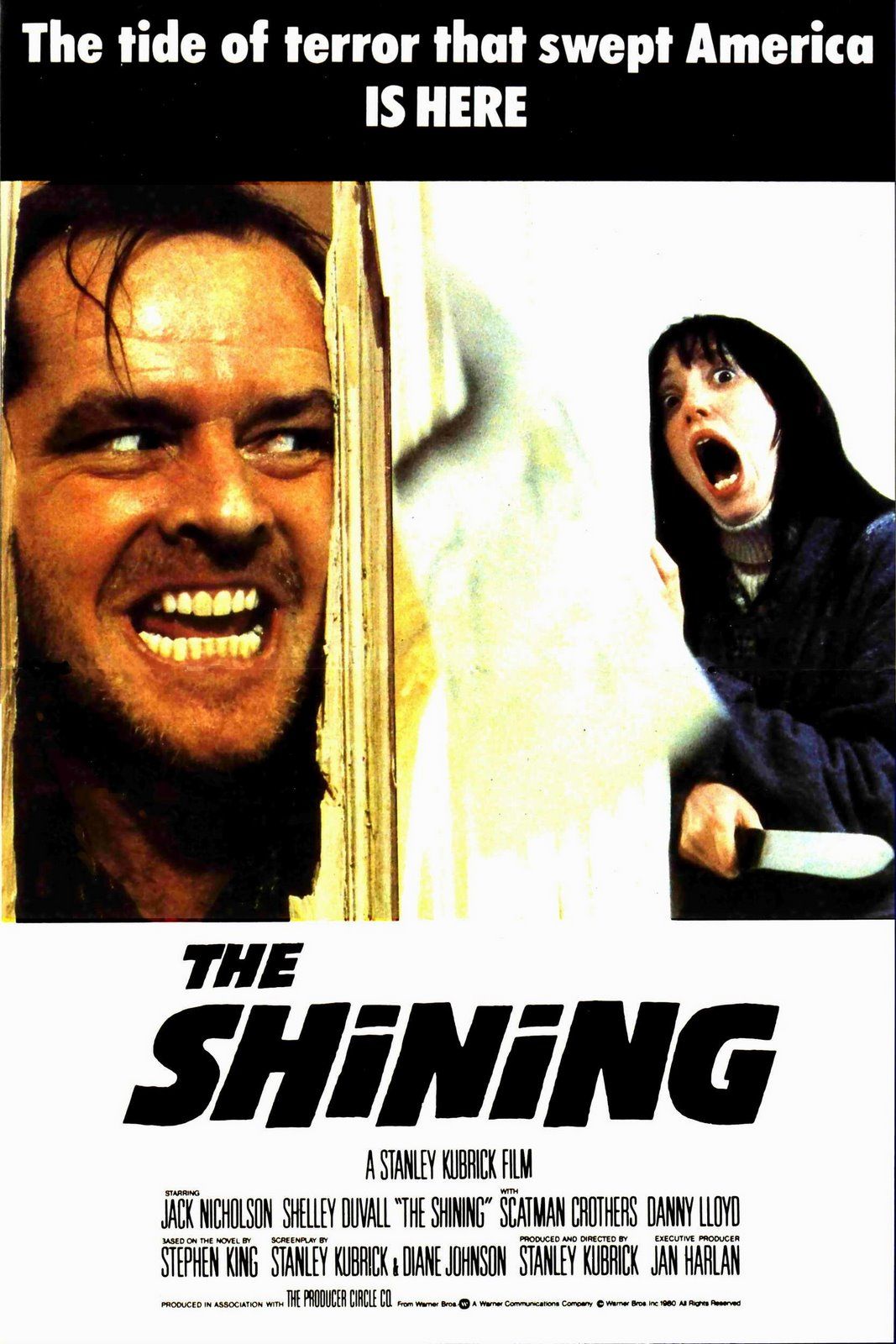The Big Picture
-
The Shining
is a horror masterpiece by Stanley Kubrick, but Stephen King hated it, including Jack Nicholson’s portrayal of Jack Torrance. - Stephen King found Wendy’s character treatment misogynistic, citing a lack of depth compared to the novel version of
The Shining
. - Despite Stephen King’s dislike of the film,
The Shining
remains a pop culture icon with chilling performances and beautiful shots.
If you look at any list of the greatest horror movies ever made, right near the top, and sometimes at the top, is Stanley Kubrick‘s The Shining (Collider has it ranked at number five). The 1980 film was the 12th biggest of the year at the box office, making $44 million. It is a frightening masterpiece from one of the greatest directors who ever lived, with phenomenal acting performances from both Jack Nicholson and the late Shelley Duvall, telling the story of a man driven mad by the ghosts of an isolated hotel he is the caretaker of, and a mother’s fight to save her psychic son. The Shining is a pop culture phenomenon, lovingly parodied over and over throughout the decades. However, despite all the praise, there has always been one controversial aspect of it. The Shining is based on the popular 1977 Stephen Kingnovel of the same name, and the master of horror absolutely hates it.
Why Was Stephen King Unhappy With ‘The Shining’ Movie?
Jack Torrance was one of the creepiest villains in film history, so much so that the American Film Institute put him at number 25 in a list of the best movie villains. It’s arguably Jack Nicholson’s most popular role, right there with playing the Joker in Tim Burton‘s Batman, or his Academy Award-winning performance in One Flew Over the Cuckoo’s Nest. Nicholson is chilling as Jack Torrance, a writer, husband, and father hired to be the caretaker of the abandoned Overlook Hotel during the winter season. Throughout the plot, the hotel’s ghosts drive him to murder and insanity. Stephen King loathed Nicholson’s performance for a reason that makes perfect sense when you think about it.
Jack Torrance is meant to be a sympathetic character, a flawed but pretty normal man who goes insane because of the Overlook’s hold on him. However, Jack Nicholson, through his facial expressions, mannerisms, and the tone of his voice, seems like he has a screw loose from the moment we meet him. We already don’t trust the guy, so him going crazy isn’t much of a jump. In a 2016 interview with Deadline, King said he disliked the film version of Jack Torrance because the character has no arc. He added:
“When we first see Jack Nicholson, he’s in the office of Mr. Ullman, the manager of the hotel, and you know, then, he’s crazy as a shit house rat. All he does is get crazier. In the book, he’s a guy who’s struggling with his sanity and finally loses it. To me, that’s a tragedy. In the movie, there’s no tragedy because there’s no real change. The other real difference is at the end of my book the hotel blows up, and at the end of Kubrick’s movie the hotel freezes.”
A horror film works when we care about its characters. We want them to live, which becomes the basis for our fear. We might care for Wendy (Duvall) and young Danny (Danny Lloyd) but we’re against Jack. He’s just the bad guy with the axe, and might as well be Michael Myers or Freddy Krueger rather than a sympathetic man. He’s terrifying, yes, but he is a near caricature instead of a character. Kubrick’s big change in how Jack dies says it all. In King’s book, Jack fights against the hotel’s ghosts, holding them off long enough to get his family to safetyso he can blow up the hotel, taking out the evil while sacrificing himself. In Kubrick’s version, he’s evil to the end, chasing Danny through the ice-cold maze with an ax, ready to kill his son with not even a hint of hesitation. He doesn’t die a hero making a sacrifice of his own life, but simply because he froze in the elements. You can see Mike Flanagan paying tribute to this in Dr. Sleep, where an older Danny (Ewan McGregor) is possessed by the hotel’s evils in the last act but is able to tell Abra (Kyliegh Curran) to run to safety before he blows the Overlook to smithereens.
Stephen King Thought Shelley Duvall’s Wendy Was Treated With Misogyny
When Shelley Duvall recently passed away, it was The Shining everyone turned to her as her best work, despite the fact that she was nominated for a Razzy for it when the movie was released. With the stories of how Kubrick treated her on set, Duvall became a sympathetic person we rooted for. Her role as Wendy Torrance might be what defines her acting career, but King wasn’t a fan of how Wendy was portrayed either. In a 2013 interview with BBC, Stephen King didn’t hold back, saying, “Shelley Duvall as Wendy is one of the most misogynistic characters ever put on film. She’s basically just there to scream and be stupid, and that’s not the woman that I wrote about.”

Related
Stanley Kubrick Made ‘The Shining’ Cast and Crew Watch This David Lynch Movie
Lynch’s film fit the surreal, supernatural mood that Kubrick was looking for.
In the novel version of The Shining, Wendy is a different character. She has more depth, with her own tragic backstory, pays close attention to Jack’s building flaws, is physically and emotionally stronger, and has a bit of the shine herself. Some love how Kubrick and Duvall brought her to life for the movie. There is a case to be made for King’s argument, that she’s the stereotype of a weak woman cowering in front of a man who is only there as a backdrop for Jack’s madness without being much of her own person.
She was nominated for that Razzy because many were so annoyed by all of her screaming and crying. Others love Wendy for just this reason. She comes across as a realistic person. Who wouldn’t be screaming and crying as you’re stuck all alone in a hotel with a husband who is losing his mind and threatening your and your son’s life? Part of the reason we fear Jack so much is because Wendy does, but she’s not weak either. She fights Jack, beating him over the head with a baseball bat and locking him in a cooler, and puts her life on the line for her son, helping him get out a window at the end when it looks like she will certainly die. Wendy in the book and Wendy in the movie are different people, but both work and are necessary for the story they are telling.
Stephen King Thought ‘The Shining’ Looked Beautiful But Had No Heart
Stephen King doesn’t hate everything about The Shining. He said on The David Letterman Show, just a few months after the film’s release, that a lot of things about the movie are beautiful and flawless, before getting in a jab that, “I feel as though I’d given Stanley Kubrick a live grenade, and he heroically threw his body on it.” He told Deadline that it looked terrific, but compared it to “a big, beautiful, Cadillac with no engine inside it.” King clarified to the BBC what this meant, saying:
“I’m not a cold guy. I think one of the things people relate to in my books is, there’s a warmth, there’s a reaching out and saying to the reader, ‘I want you to be a part of this.’ With Kubrick’s
The Shining
, I felt that it was very cold. We’re looking at these people, but they’re like ants in an ant hill. ‘Aren’t they doing interesting things, these little insects?'”
There is a valid argument there. King’s books might have horrific themes most of the time, but we keep going back to be engrossed in the world and absorbed by these characters we love so much. Take It, for example. It’s just as much an emotional coming-of-age story as it is about a killer clown. The characters in the book version of The Shining have more depth, making them more relatable, but in Kubrick’s film they’re pieces on a flashy board being pushed around.
Millions of people must have felt it or The Shining wouldn’t be the classic it is today. Stephen King does have a point, though, that his story is more human-centered and emotional, while Kubrick’s comes across as a well-shot art film. All these decades later, we talk about the layered themes (there’s a whole documentary called Room 237 about it — which King hates as well), but we don’t speak as much about the characters and how they make us feel. Kubrick never responded to the criticism, and as for King, he tried to right the perceived wrongs by penning the screenplay for a 1997 miniseries that was faithful to his book. Despite the effort, we don’t talk about that version today. It’s Stanley Kubrick, Jack Nicholson, and Shelley Duvall that live on forever like ghosts in a hotel, whether Stephen King likes it or not.
The Shining is available to watch on Shudder.
WATCH ON SHUDDER



